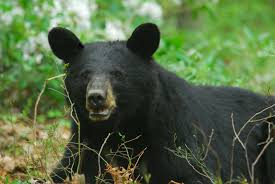The Pennsylvania Game Commission is attempting to capture the black bear that attacked and severely injured a woman Wednesday in Lycoming County.
Game wardens will be going door-to-door in the area to inform residents about the attack and measures they can take to discourage bears from their properties.
The Game Commission on Thursday set two live traps near the home where the attack occurred, and on Friday morning, a team of tracking dogs set out on the bear’s trail to try to locate it.
While black-bear attacks on humans are rare in Pennsylvania, and there’s nothing to suggest the same bear will attack again, out of an abundance of caution, the bear will be euthanized if trapped or located.
The bear has not been located as of this time.
While black bears are strong and powerful animals that always should be respected, they generally are passive and pose little threat to people, said Game Commission black-bear biologist Mark Ternent.
Most injuries from bears can be explained by human activities such as feeding or accidentally surprising a habituated bear in close quarters, Ternent said.
Although not all of the details surrounding this bear attack are known, the Game Commission’s investigation has revealed the bear had cubs by its side, and the victim was attacked as she attempted to retrieve her dog, which had run toward the bears.
“While there still are some questions about what led to this attack, it can be said with certainty that these types of encounters are extremely rare,” Ternent said.
“Pennsylvania has a large bear population – about 20,000 animals. It’s not unusual for bears to occur in residential areas, and interactions between people and bears occur regularly, typically without incident.”
“While bear attacks seldom occur, there’s always potential for the unfortunate exception to the rule,” Ternent noted. “Fortunately, most of the injuries that have occurred in Pennsylvania have not been life-threatening.”
In going door-to-door to inform neighbors about the attack, game wardens also are educating the public about bears and steps that can be taken to discourage bears from properties.
It is unlawful in Pennsylvania to intentionally feed bears, and items like garbage or birdseed can attract bears to a property when left outside. If such food sources are removed, a bear has little reason to spend time around homes.
“In canvassing the homes in the area, our officers are making sure residents are aware of the law that prohibits the feeding of bears, and otherwise doing what they can to ensure their safety,” said David Mitchell, director of the Game Commission’s Northcentral Region.
“While black-bear sightings are relatively common, and in most cases there’s no need to report seeing a bear, we are asking neighbors for the time being to report any black bears they see because we’re looking for the bear that caused this attack.”
The Game Commission’s Northcentral Region can be reached by phone at 570-398-4744.
While many of the state’s black bears are hibernating by mid-December, Ternent said the timing of hibernation is influenced by available food, and follows a staggered schedule through which pregnant females enter hibernation first, then other bears.
Thus, it’s not unusual for bear sightings to occur into late December, even early January, he said.
If the bear involved in the attack is captured, it will undergo a full evaluation at Penn State’s animal diagnostics laboratory, Ternent said.
Meanwhile, Game Commission Executive Director Bryan Burhans expressed sympathy to the victim.
“The Pennsylvania Game Commission extends its full concern and sympathy to the victim of this attack, and her family, as we continue to respond to the incident,” Burhans said.
